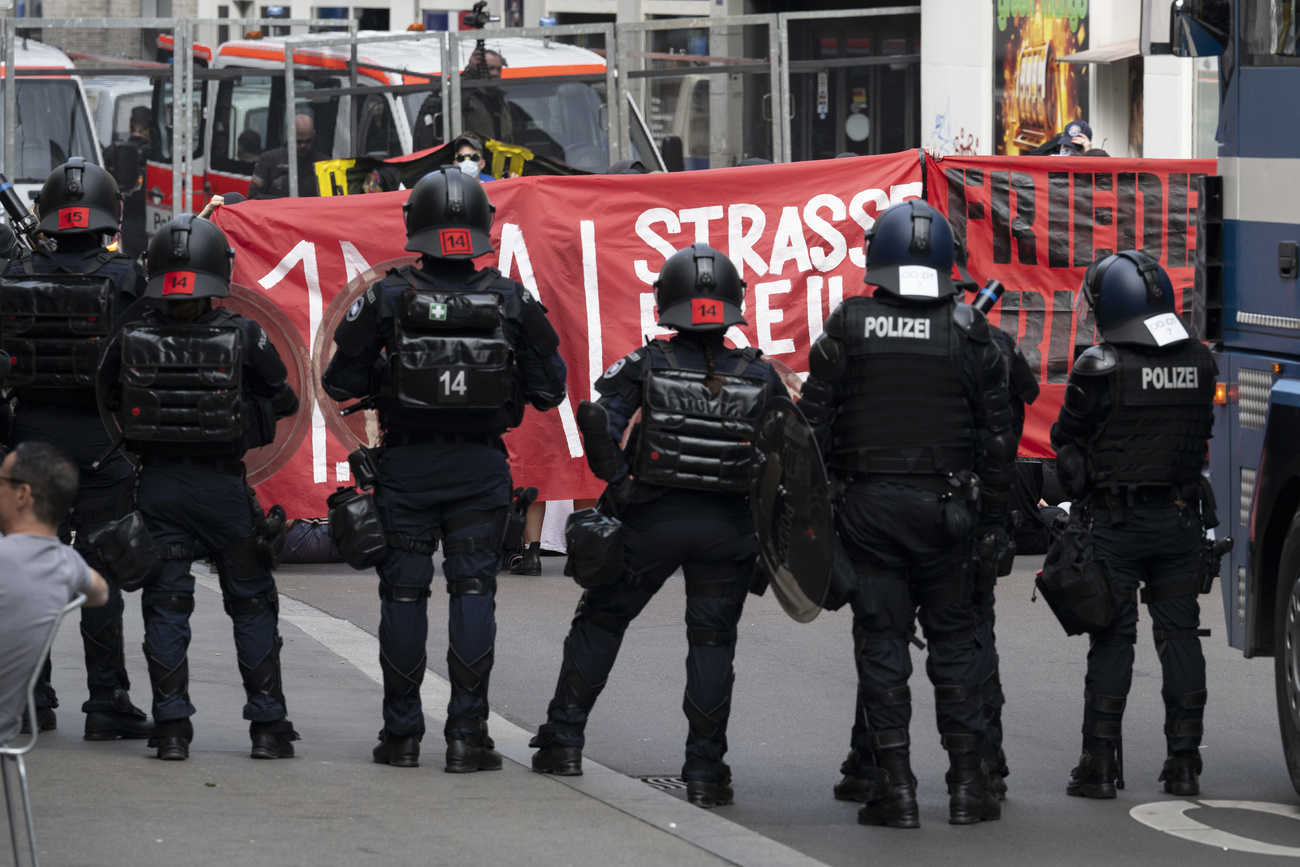Accord paves way for new Red Cross emblem

Israeli and Palestinian emergency services have signed a cooperation agreement in Switzerland, paving the way for the adoption of a new Red Cross emblem.
The historic accord, which was brokered by the Swiss government, comes a week before a diplomatic conference in Geneva on whether to approve a third humanitarian symbol – the Red Crystal.
Swiss Foreign Minister Micheline Calmy-Rey, who presided over Monday’s ceremony, declared the agreement an “important milestone” not just in the humanitarian domain but also in the context of Israeli-Palestinian relations.
“Beyond the humanitarian sphere it sets an example for the Israelis and the Palestinian public, and thereby makes a small but meaningful contribution to the wider process of achieving peace and cooperation between your two nations,” she said.
“Finally it goes a long way to address the concerns that have so far prevented a number of states from wholeheartedly embracing the solution of the longstanding issue of the emblems of the Geneva Conventions and the Red Cross and Red Crescent Movement.”
Switzerland, which is the depositary state of the Geneva Conventions, is due to host the 192 signatory states next week to discuss the adoption of a third additional protocol, which would see the introduction of the Red Crystal.
Star of David
Israel’s Magen David Adom (MDA) refuses to operate under either of the two emblems currently used and recognised by the Red Cross movement, insisting on its own symbol – a red Star of David.
As a result the MDA has been denied membership of the movement for more than 50 years. The Palestine Red Crescent Society (PRCS) only has observer status because it is not under the jurisdiction of a recognised state.
The signing of the agreement in Geneva on Monday should clear the path for both aid organisations to join the International Red Cross and Red Crescent Movement.
“[The agreement] certainly does make a crucial contribution for the Red Cross and Red Crescent Movement to achieve its ambition of universality,” said Calmy-Rey.
Last month the Swiss foreign minister embarked on a three-day tour of the Middle East to try to secure support for the new symbol ahead of the two-day conference, which is scheduled to begin in Geneva on December 5.
Calmy-Rey said on Monday that Switzerland would try to obtain a similar accord between the MDA and Syria ahead of the conference. The Syrian government has expressed reservations about the adoption of the Red Crystal.
Under the agreement signed on Monday, the PRCS said its Israeli counterpart would be allowed to operate in the Palestinian territories under the protection of the Red Crystal.
The MDA in return recognised the Palestinian Red Crescent as the national society in the Palestinian territories, and both societies agreed to respect the other’s jurisdiction and to operate in accordance with Red Cross rules.
Swiss monitoring role
Switzerland will monitor implementation of the agreement and report back to the Red Cross movement.
Both the Swiss-run International Committee of the Red Cross (ICRC) and the Geneva-based International Federation of Red Cross and Red Crescent Societies welcomed the courage shown by the Israeli and Palestinian aid organisations in forging the agreement.
ICRC president Jakob Kellenberger said the move would facilitate humanitarian work in the region. He also praised the “impressive commitment” of the Swiss authorities in mediating between the two sides.
“For us the signing of this arrangement is an important step towards the adoption of the third additional protocol which we hope will happen next week,” he said.
Both the Palestinians and the Israelis said they hoped one immediate consequence would be that it would become easier for Palestinian ambulances to pass Israeli army checkpoints.
The MDA said it would assist its Palestinian counterpart in securing freedom of movement for ambulances throughout the occupied territories.
“Every minute we gain is a minute we save a life,” said Younis Al-Khatib, president of the PRCS. “I hope we will be able to save more lives.”
swissinfo, Adam Beaumont in Geneva
Switzerland is the depositary state of the Geneva Conventions – a series of rules to guarantee human rights during times of conflict.
The conventions and the additional protocols are aimed at protecting civilians, the sick and prisoners of war.
More than 190 countries have ratified the treaties.

In compliance with the JTI standards
More: SWI swissinfo.ch certified by the Journalism Trust Initiative









You can find an overview of ongoing debates with our journalists here . Please join us!
If you want to start a conversation about a topic raised in this article or want to report factual errors, email us at english@swissinfo.ch.